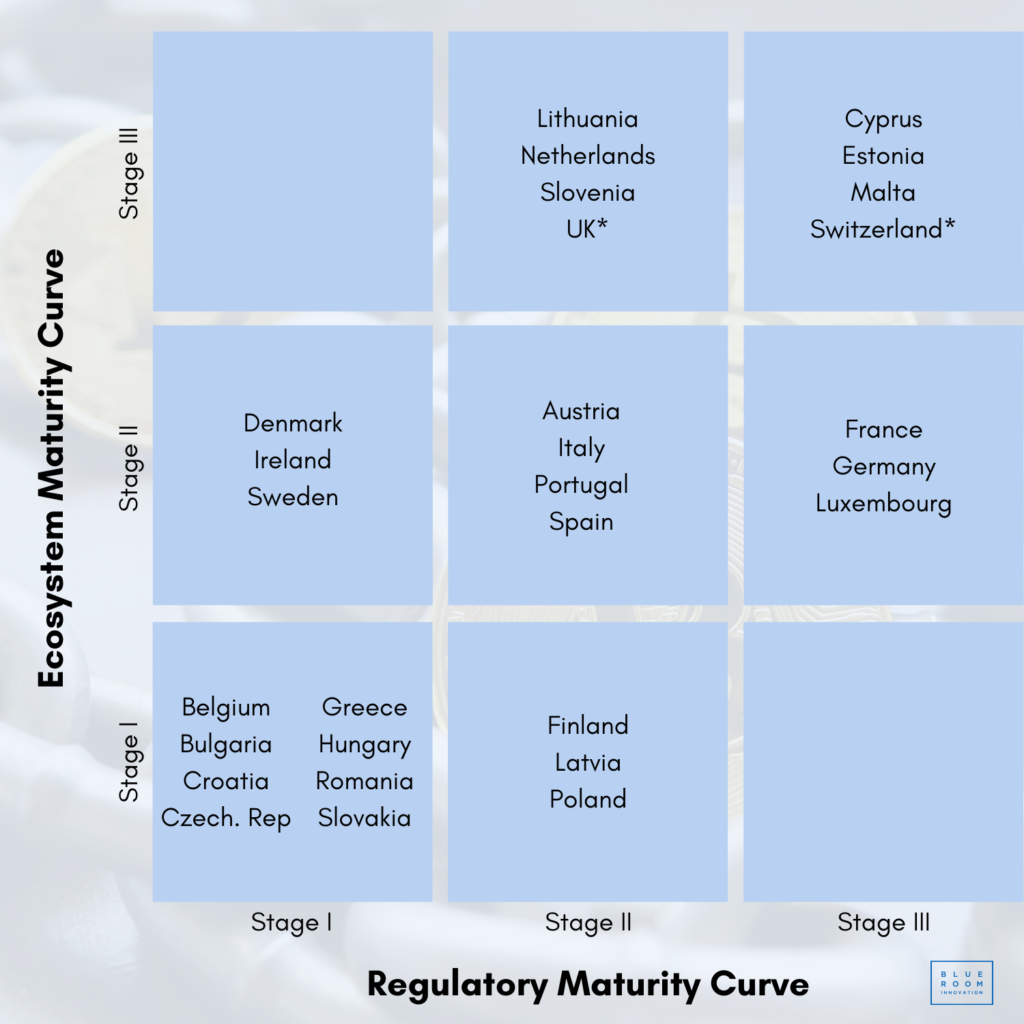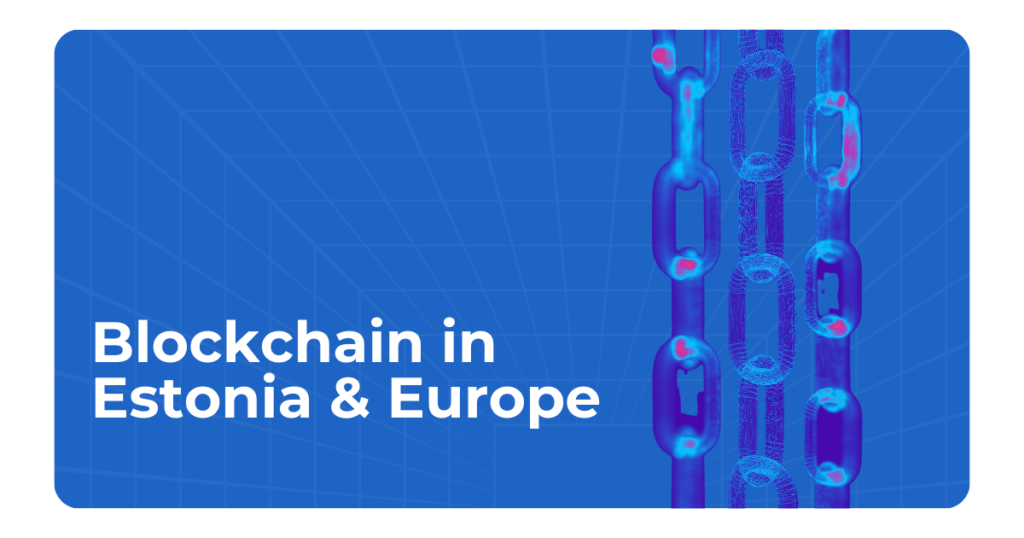What should we learn from Estonia? The blockchain in Europe.
Given the growing interest in crypto assets and their underlying technology (blockchain or Distributed Ledger Technology, DLT), entities such as the European Blockchain Observatory and Forum have led studies on the current state of technological developments, the market and regulation in each of the 27 EU member states, including also the United Kingdom and Switzerland. The study arises from the need to study the different European markets in order to create a harmonized framework for all countries and where Estonia is one of the most advanced.

To reach this conclusion, the study assesses and compares two key aspects for the advancement of countries in the field of blockchain: current regulation and policy and business activity. Why?
- Regulation and policy: countries begin to legislate and issue guidelines on the use of the blockchain and its applications. Differences between EU members are fostering a fragmentation of the European market and is a key factor in being able to advance in business activity.
- Business activity: as a consequence of different regulatory treatment, business and investment activity is concentrated unevenly across countries, leading to emerging clusters.
The result of this exhaustive study draws a matrix by means of which it is very easy to interpret which countries have advanced the most and which are at the bottom.
Estonia, a blockchain Mecca
Estonia and Cyprus are countries with high regulatory maturity and market development. In them there are numerous evidences of great initiatives in companies, academia and communities. On the other hand, these are countries wherethere is specific legislation for blockchain or crypto assets voted or published, and / or the government has announced a specific strategy / vision for the blockchain (or for new technologies, explicitly addressing blockchain). Having regulatory Sandboxes, innovation centers and other initiatives that allow blockchain, fintech and other companies to test new implementations, as well as the participation of the banking sector, are also characteristics of countries in state three of regulatory maturity, as observed in the board.
Estonia has embraced blockchain as one of the technological pillars of its state-backed digital backbone. It has also been one of the first countries in Europe to work on the regulation of crypto assets, providing a "digital assets license" to providers of exchange and custody crypto-asset portfolios. As a result, the country has attracted a large number of companies that have raised enough capital to put the country first in terms of blockchain funding per capita. This great development has led Forbes magazine to consider Estonia as the most digital country in the world and the Mecca of the blockchain for many.
Beyond Estonia
Opposite to Estonia, are countries with grade 1 in regulatory and ecosystem maturity such as Belgium, Bulgaria or Croatia. They do not have specific legislation on crypto assets, except for some warnings issued by local authorities. All this coupled with the fact that there are few initiatives mobilized by the blockchain in academic companies or communities.
According to the study, Spain, Italy and Portugal are in state 2 of regulatory maturity and market development. While France or Germany have done their homework in legislation, a fact that will surely allow them to increase the market exponentially in the near future.
Do you want to know more in detail the state of each of the countries? Discover this and other reports by joining or following EU Blockchain Observatory and Forum. And more about Blue Room Innovation blockchain projects in our projects section.
Experts in digital innovation at your service
Discover how Blue Room Innovation transforms ideas into digital solutions with real impact and commitment to sustainability.
Are you ready to be part of the change?
Follow us
Copyright © 2024 Blue Room Innovation Privacy Policy - Legal Warning - Cookies Policy

